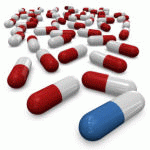Pharmacology
|
18 october 2019 07:01:01 |
| Marine Drugs, Vol. 17, Pages 590: Sargassum Seaweed as a Source of Anti-Inflammatory Substances and the Potential Insight of the Tropical Species: A Review (Marine Drugs) |
|
Tweet Sargassum is recognized both empirically and scientifically as a potential anti-inflammatory agent. Inflammation is an important response in the body that helps to overcome various challenges to body homeostasis such as microbial infections, tissue stress, and certain injuries. Excessive and uncontrolled inflammatory conditions can affect the pathogenesis of various diseases. This review aims to explore the potential of Sargassum’s anti-inflammatory activity, not only in crude extracts but also in sulfated polysaccharides and purified compounds. The tropical region has a promising availability of Sargassum biomass because its climate allows for the optimal growth of seaweed throughout the year. This is important for its commercial utilization as functional ingredients for both food and non-food applications. To the best of our knowledge, studies related to Sargassum’s anti-inflammatory activity are still dominated by subtropical species. Studies on tropical Sargassum are mainly focused on the polysaccharides group, though there are some other potentially bioactive compounds such as polyphenols, terpenoids, fucoxanthin, fatty acids and their derivatives, typical polar lipids, and other groups. Information on the modulation mechanism of Sargassum’s bioactive compounds on the inflammatory response is also discussed here, but specific mechanisms related to the interaction between bioactive compounds and targets in cells still need to be further studied. |
| 282 viewsCategory: Biochemistry, Molecular Biology, Pharmacology |
 Marine Drugs, Vol. 17, Pages 591: Fucoidan-Rich Substances from Ecklonia cava Improve Trimethyltin-Induced Cognitive Dysfunction via Down-Regulation of Amyloid ? Production/Tau Hyperphosphorylation (Marine Drugs) Marine Drugs, Vol. 17, Pages 591: Fucoidan-Rich Substances from Ecklonia cava Improve Trimethyltin-Induced Cognitive Dysfunction via Down-Regulation of Amyloid ? Production/Tau Hyperphosphorylation (Marine Drugs)Marine Drugs, Vol. 17, Pages 589: Physicochemical and Biological Properties of Gelatin Extracted from Marine Snail Rapana venosa (Marine Drugs) 
|
| blog comments powered by Disqus |
MyJournals.org
The latest issues of all your favorite science journals on one page
The latest issues of all your favorite science journals on one page



